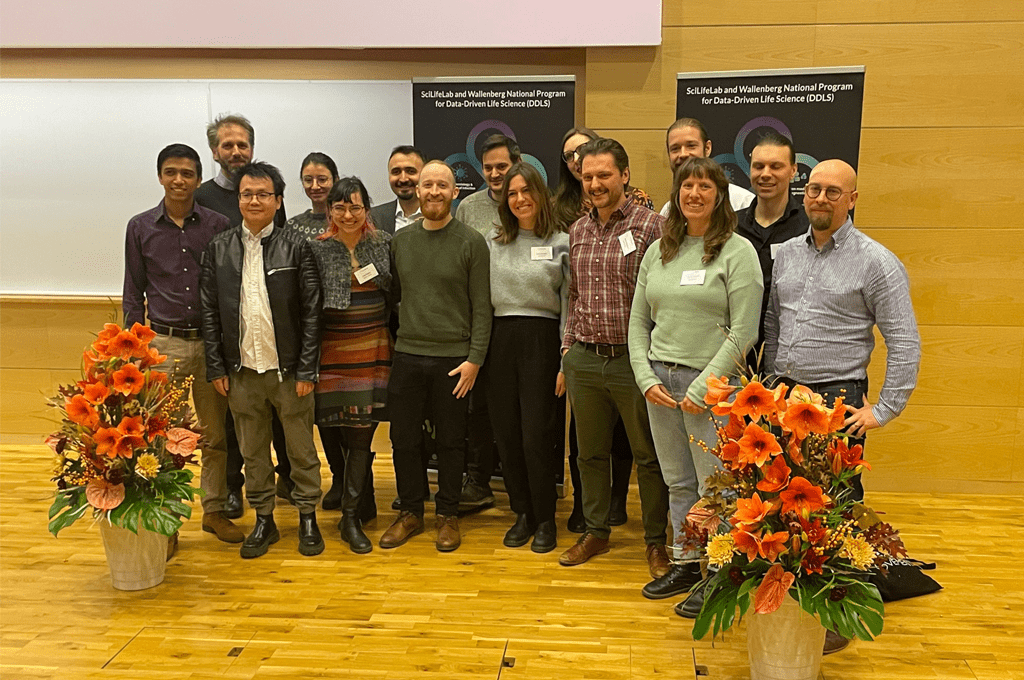Insights and highlights from the 2nd DDLS Annual Conference
The 2nd DDLS Annual Conference lit up the November darkness, gathering the illuminating data-driven life science community connected by the SciLifeLab & Wallenberg National Program for Data-Driven Life Science. The aim was to bring together the data-driven life science community, introduce newly appointed DDLS fellows, and provide opportunities for networking across the research community and SciLifeLab infrastructures. The overarching theme for the 2023 conference was The emerging role of AI in data-driven life science.
Ola Spjuth, chair of the Scientific Committee DDLS Annual Conference, welcomed the participants to the meeting.
“The speed of development right now in the AI field is super fast, and this necessitates interdisciplinary collaborations both within the DDLS program and also with other programs such as WASP,” said Ola Spjuth.
Olli Kallioniemi, SciLifeLab- and DDLS Director, gave a presentation on Data and AI as drivers, highlighting some of the past few years’ breakthroughs in a DDLS context.
“The Swedish National Program for Data-Driven Life Science (DDLS) Program is a 12-year initiative funded by Knut and Alice Wallenberg Foundation, involving 11 partners, ten universities, and the National Museum for Natural History. The program was launched in October 2020, i.e., very timely and almost exactly two years before the launch of ChatGPT 3.0 in November 2022,” said Olli Kallioniemi
During the two-day program, seminars and keynotes were intertwined with networking sessions and poster exhibitions. Five DDLS Fellows presented their research fields and exemplified the breadth of science conducted under the DDLS umbrella: Wen Zhong (Linköping University), Juliette Griffé (Stockholm University), Cemal Edem (Umeå University), and Wei Ouyang (KTH).
DDLS Fellow Wei Ouyang spoke about the AI for Cell Laboratory and his approach to laying the AI foundation for a data-driven whole-cell modeling approach.
“Our focus lies in leveraging generative AI-powered whole-cell modeling techniques, particularly through Diffusion Models and Large Language Models powered multi-agent systems, to simulate and understand complex human cellular behavior using real-life data,” said Wei Ouyang, DDLS Fellow (KTH).
The DDLS annual conference best poster award was given to David Fernandez Bonet (KTH) for his poster on Processing spatial networks through UMI. The winner was decided by a jury appointed by the conference’s scientific committee, and the award was a certificate and a travel grant (up to SEK 5 000).
The Scientific Committee of the 2nd DDLS Annual Conference constituted of Ola Spjuth as chair (Uppsala University), DDLS Fellow Johan Bengtsson-Palme (Chalmers), DDLS Fellow Laura Carroll (Umeå University) and Fredrik Johansson from WASP (Chalmers). Erika Erkstam, SciLifeLab Operations Office, managed the project.
University of Gothenburg news article
A Growing Research Community Within Data-Driven Life Science





